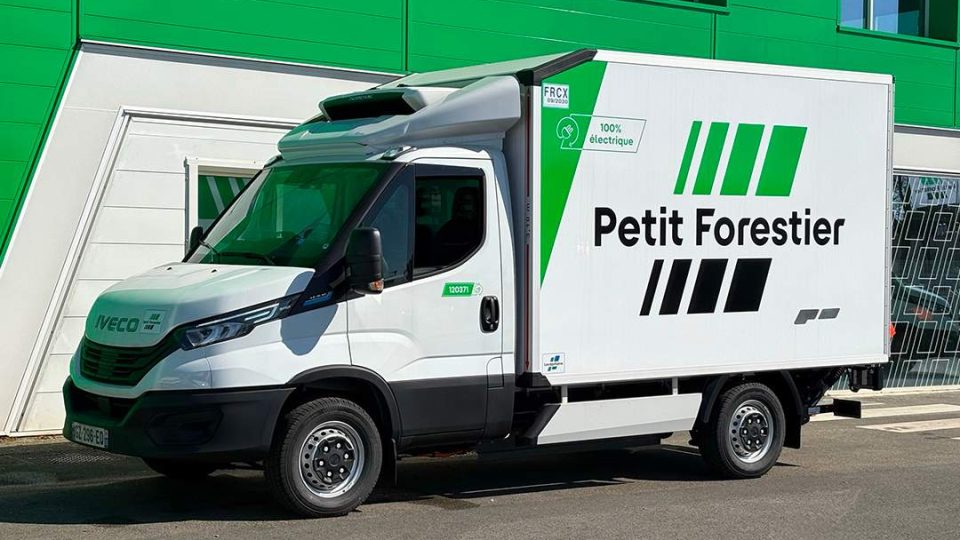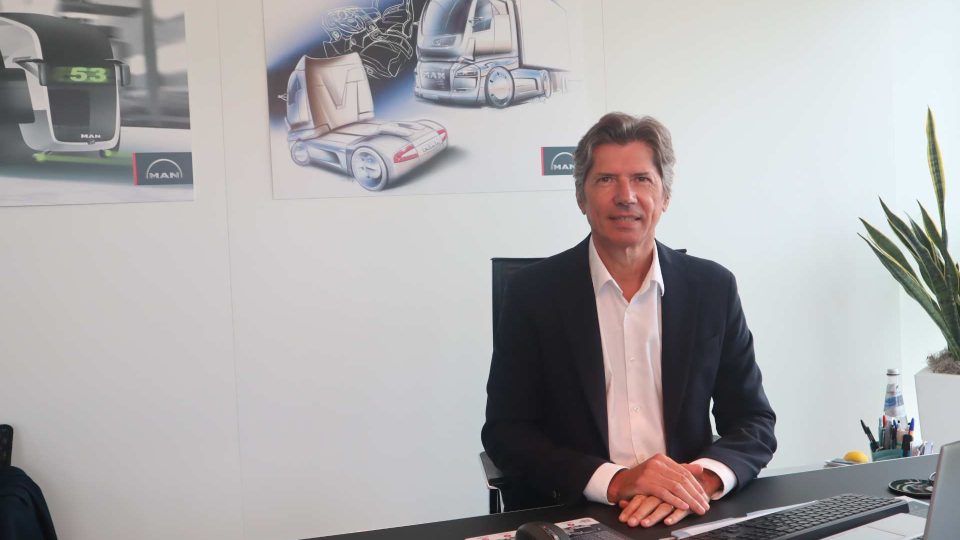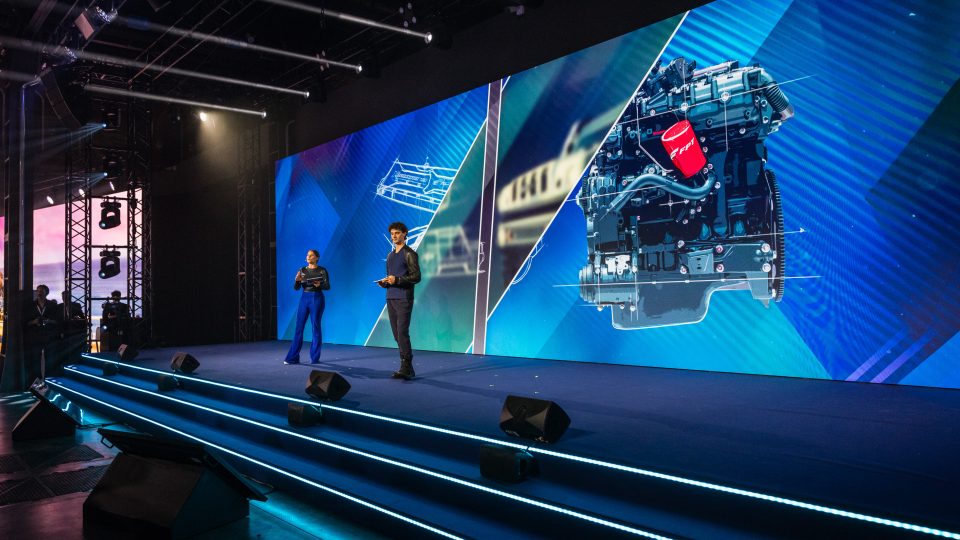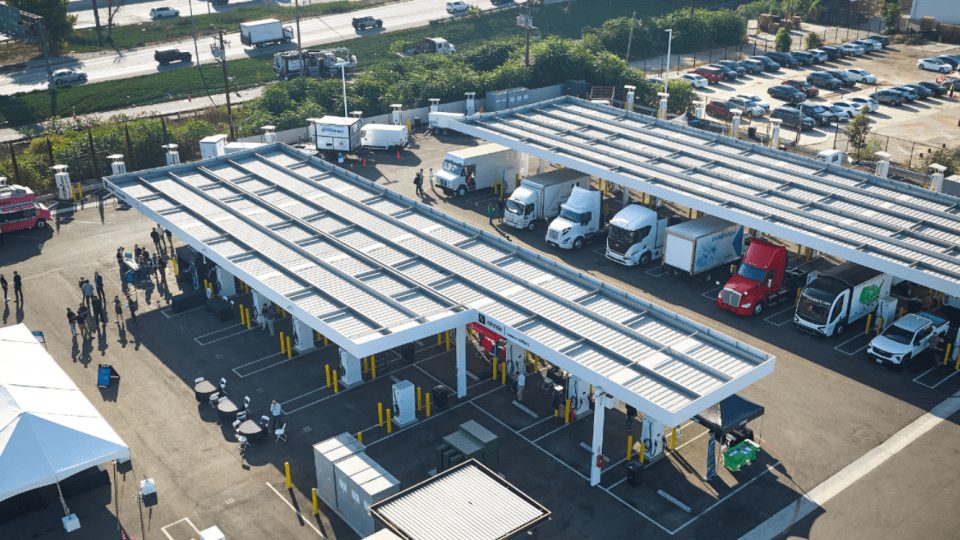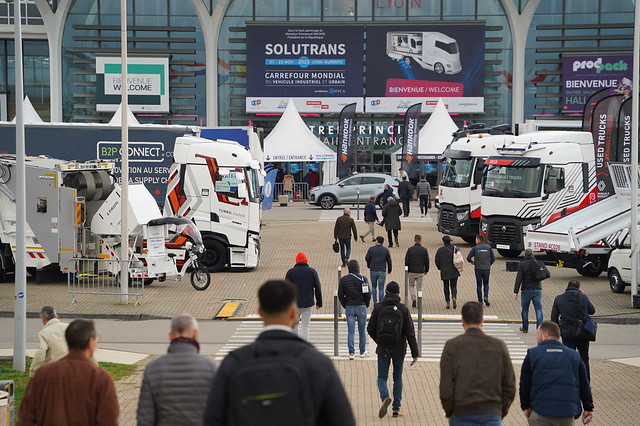Fuel cells, solar panels, electrification. Lamberet explores several ways to reduce emissions
French manufacturer of bodyworks for refrigerated vehicles Lamberet is working hard with the aim of reducing emissions. According to their philosophy, clearly showed during the last Solutrans in Lyon, there are multiple ways to achieve the sustainability goal. Each of them implies a «change of mentality» compared to the past, as explained by Marketing and Communication manager, Quentin Wiedemann.
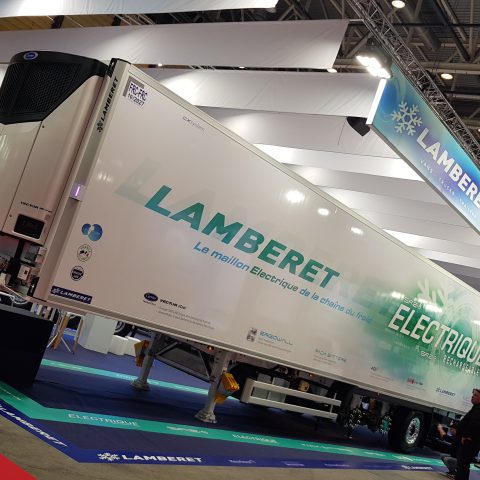
French manufacturer of bodyworks for refrigerated vehicles Lamberet is working hard with the aim of reducing emissions. According to their philosophy, clearly showed during the last Solutrans in Lyon, there are multiple ways to achieve the sustainability goal. Each of them implies a «change of mentality» compared to the past, as explained by Marketing and Communication manager, Quentin Wiedemann.
Fuel cells to reduce emissions: Lamberet collaborating with Bosch
Starting with hydrogen and fuel cell technology, Lamberet has been working with global specialist Bosch to the so-called SR2 FRESH2, a multi-temperature reefer whose electric cooling unit is powered directly by the hydrogen fuel cell without the need for a buffer battery. The manufacturer of cooling units Carrier Transicold and the French transport company STEF took part in the ambitious project. «Together with Bosch, we developed the possibility to retrofit some trailers, with the target to have – maybe in five-year time – the fuel cell instead of the diesel engine to power the cooling unit», explains Wiedemann. «The fuel cell feeds electricity directly to the cooling unit, with advantages in terms of weight or cost. The collaboration with Bosch is crucial, as they are a leading company when it comes to hydrogen development. It is a long-term project with them. To give you an idea, we want to cut by half the weight, as well as the cost of the trailer, which is currently four times more expensive than the standard one».
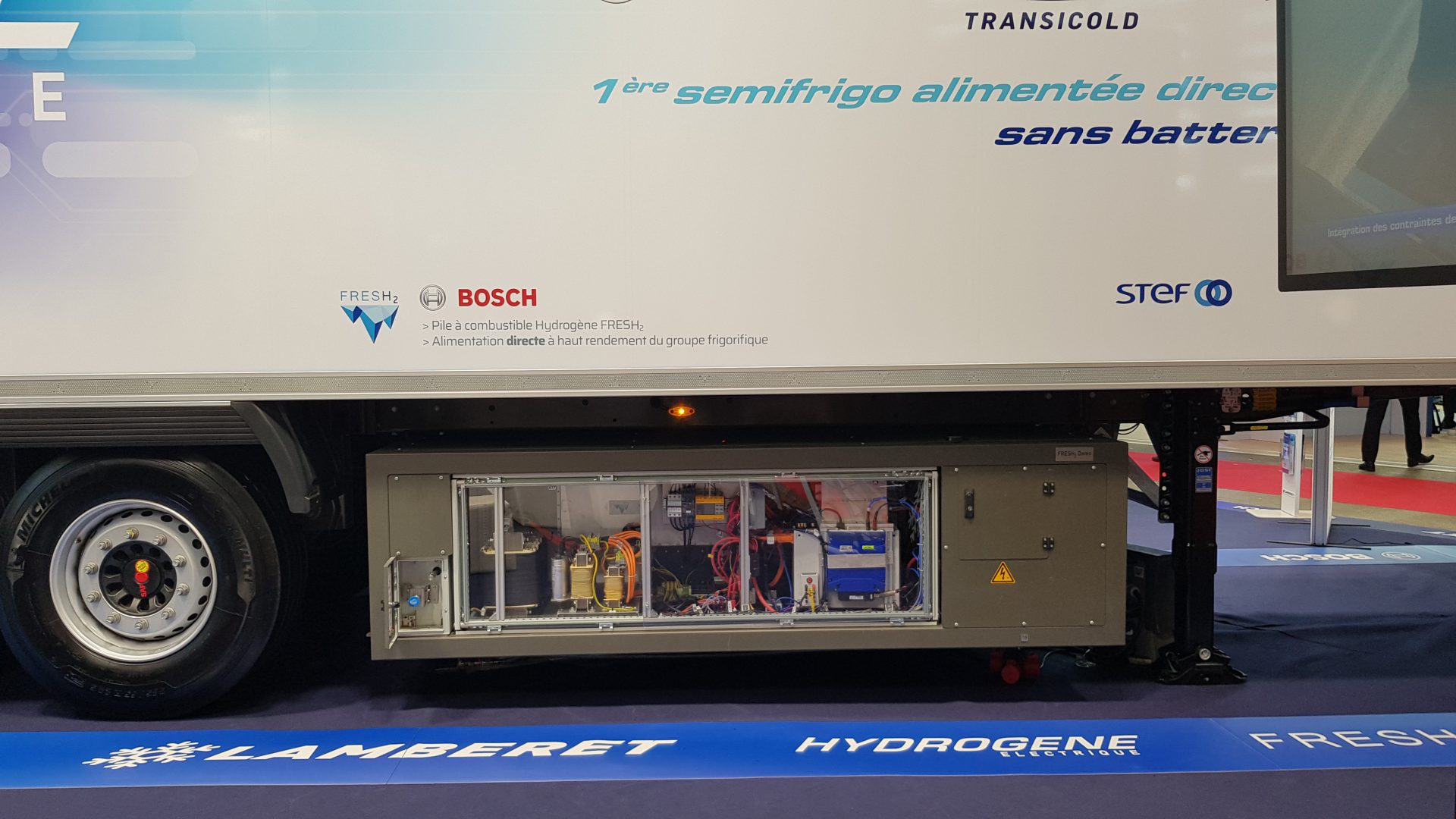
In Lamberet’s idea, electric trailers are suitable for distribution of regional haul, not possible for long-haul transportation, whose requirements do not fit with batteries and charging. Their idea is to be ready when suppliers are ready, in the medium- to long-term.
Renault Trucks, distribution, solar panels
The collaboration with Renault Trucks is crucial within the shared project that led to the D Z.E. 26-tonne electric straight truck with a Frigoline HD refrigerated body and a solar panel power system to supply extra power to the bodywork. We are not talking about prototypes, but functional mass-producible bodies, with several vehicles delivered this year for companies such as Casino and Lidl, among others. «When it comes to refrigerated vehicles, the difficulty is that we need electricity for the cooling unit, as well as for sensors, temperature recorder, lighting side, and so on. At the end of the day, it makes a lot of energy», explains Quentin Wiedemann. «So, either we put our own battery pack, but then the price goes crazy, or we work together with the OEM. In Renault Trucks, they’re very ingenious in this way: they have 4 battery packs, 3 of them are fully dedicated to the vehicle traction, while the last one is shared with us. It is very interesting, as it allows us not to have additional costs».
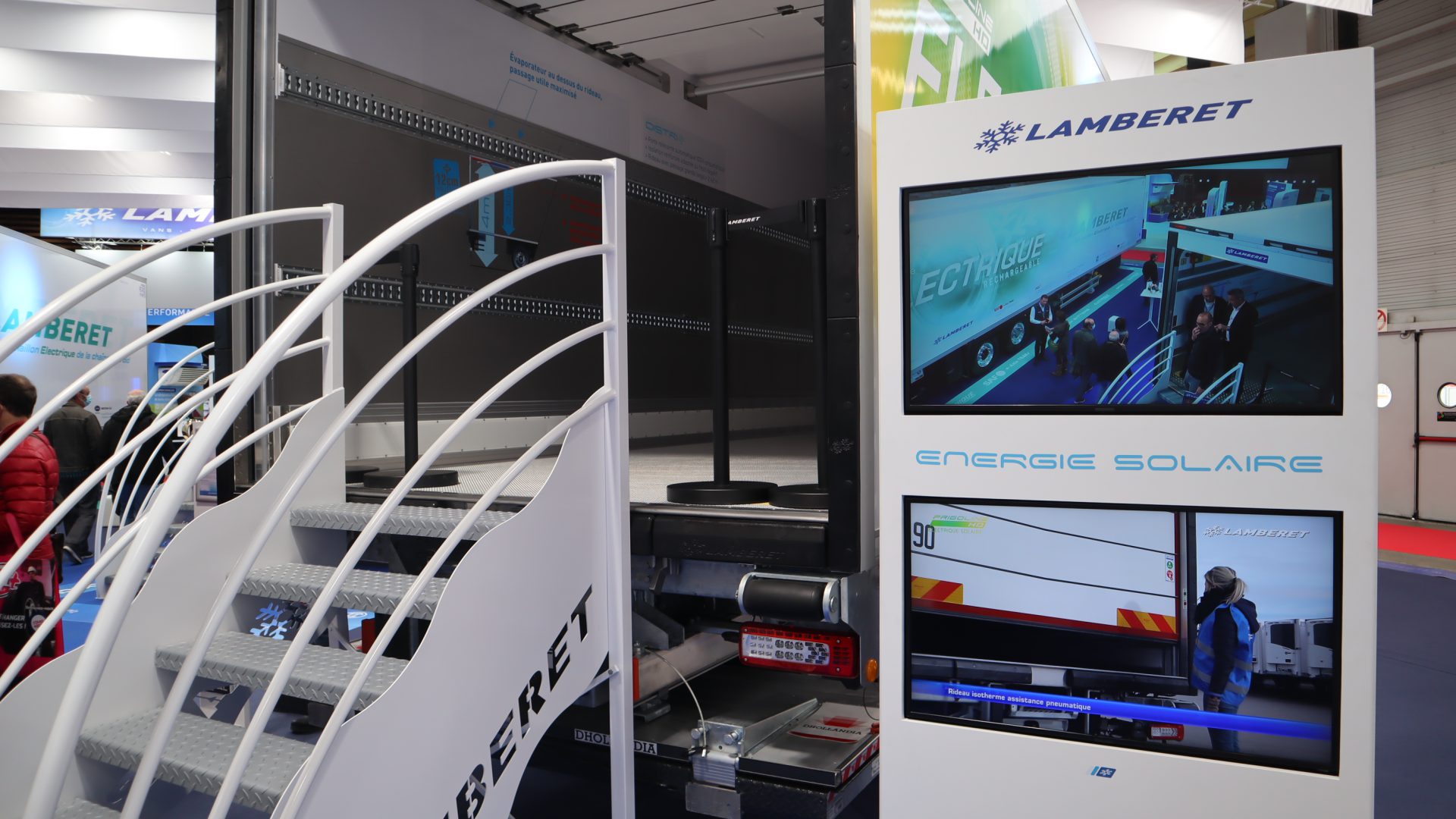
In such a scenario, solar panels help the system to save energy for the truck. «The use of solar panels is not totally new, but it has improved a lot, lately. Now, we can say it’s also competitive in terms of costs, as both the solar panel technology and the battery cells have become more affordable. And we’re not talking about a prototype: companies like Aldi or Lidl are already using these trucks, making them part of their decarbonization strategies».
Here comes what we mentioned earlier, the need for a change of mentality, as explained by Wiedemann. «If we don’t work together with truck manufacturers and suppliers of the cooling unit, it’s impossible to achieve such innovations. It’s a shift of mentality compared to the past, when there was not connection on the development side».
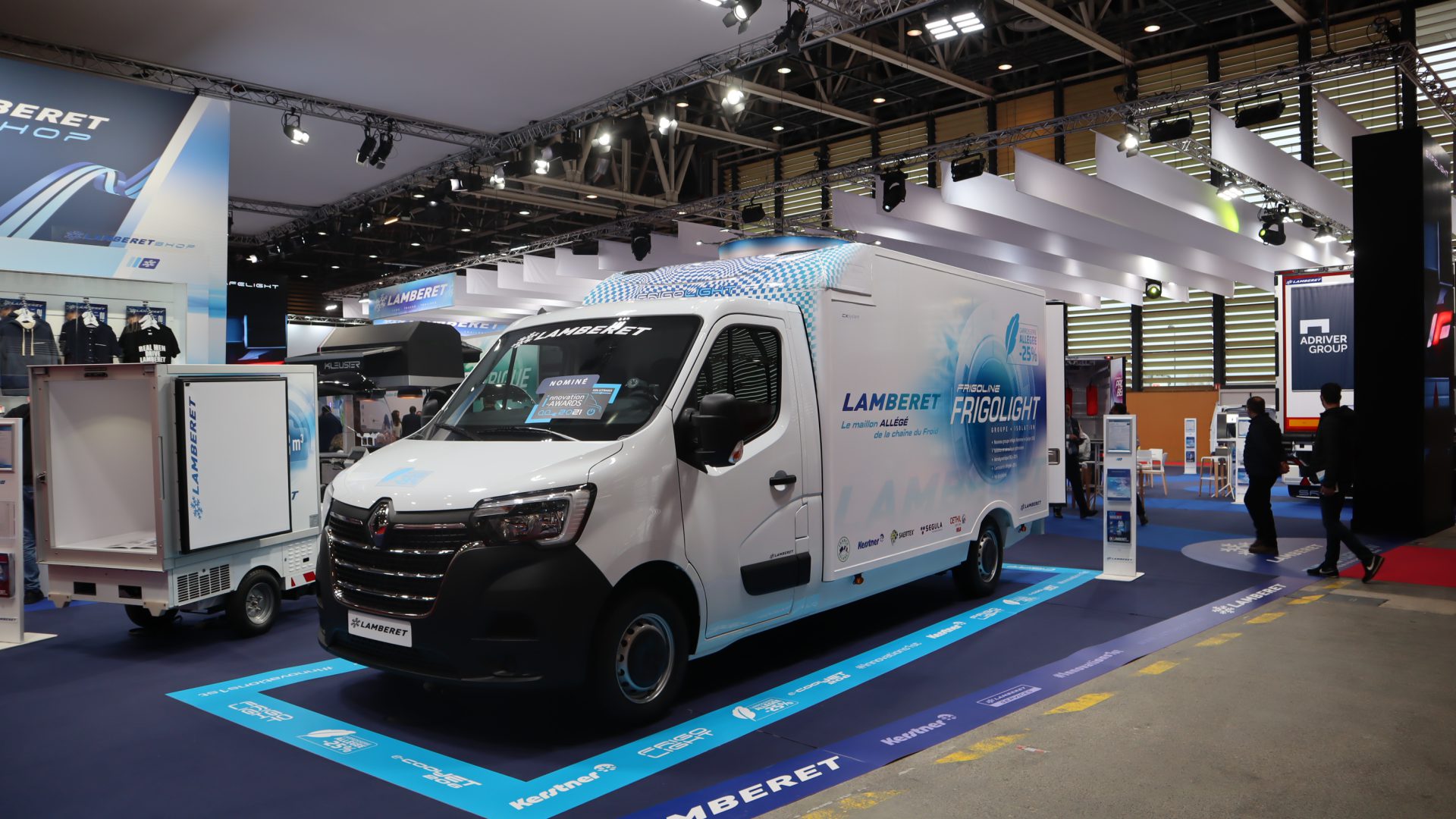
Purely electric
As a third pillar within this strategy, Lamberet has put on display the SR2-e, a ‘rechargeable electric’ multi-temperature distribution reefer whose energy requirements are met by a battery pack. The latter can be recharged either while driving through energy recovery or production, or from the mains with the option of a static precharge (as for a rechargeable hybrid vehicle). The latest generation TRAK’r electric generator axle, supplied by SAF-Holland, is integrated into the chassis of the semi-trailer made by Lamberet.
Finally, when it comes to vans, Lamberet managed to equip a Peugeot e-Expert full electric van with an ultra-efficient insulation solution coupled with an eCoolJet 106 unit from Kerstner, a Lamberet subsidiary. In this case, no additional battery packs are required for refrigeration.




